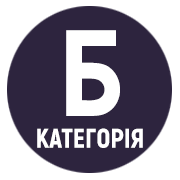СТАН І ПЕРСПЕКТИВИ ГАРМОНІЗАЦІЇ НАЦІОНАЛЬНИХ СТАНДАРТІВ ХАРЧОВОЇ ГАЛУЗІ З МІЖНАРОДНИМИ ТА ЄВРОПЕЙСЬКИМИ
Анотація
Мета статті полягає в аналізі сучасних тенденцій стандартизації у сфері технічних умов щодо харчових продуктів і методів визначання показників їхньої безпечності та якості, а також складенні порівняльної характеристики актуального перебігу гармонізації національних стандартів України з міжнародними. Використано такі методи дослідження: системний підхід до досліджень фактологічних матеріалів, зокрема наукової та науково-практичної літератури, нормативно-правових актів, нормативних документів тощо; абстрактно-логічний підхід щодо узагальнення результатів дослідження та формулювання висновків. Установлено, що в умовах членства України в СОТ та чинності Угоди з Європейським Союзом важливою є узгодженість національних стандартів із міжнародними, тобто їх гармонізація. Підрахунки показали, що частка гармонізованих стандартів за класифікаційним кодом 67 «Технологія виробництва харчових продуктів» становить 35,8 %. Проаналізовано можливість і доцільність подальшого підвищення темпів та якості гармонізації стандартів ДСТУ з міжнародними. Зроблено висновки щодо перспективності використання в Україні стандартів, гармонізованих без перекладу, – у разі їх вузької спрямованості. Стандарти із широким колом користувачів доцільно гармонізувати шляхом ідентичного перекладу тексту українською мовою.
Посилання
2. Угода про технічні бар’єри в торгівлі [Електронний ресурс]. – Режим доступу: http://zakon.rada.gov.ua/low/show/981_008 (дата звернення: 23.09.2019). – Назва з екрана.
3. Вербицький С. Б. Гармонізація вітчизняних стандартів з міжнародними правилами і вимогами ГАТТ/СОТ та контроль за їх дотриманням / С. Б. Вербицький // Харчова промисловість України: стратегічні аспекти розвитку : монографія / за заг. ред. акад. НААН Я. М. Гадзала. – Київ : – Аграр. наука, 2016. – С. 278–286.
4. Угода про Асоціацію між Україною, з однієї сторони, та Європейським Союзом, Європейським співтовариством з атомної енергії і їхніми державами-членами, з іншої сторони. – 2014. [Електронний ресурс]. – Режим доступу: https://zakon3.rada.gov.ua/laws/show/984_011 (дата звернення: 23.09.2019). – Назва з екрана.
5. Романчук І. О. Порівняльний аналіз правового регулювання обов’язкових вимог до харчових продуктів в Україні, Митному та Європейському Союзах / І. О. Романчук // Продовольчі ресурси : зб. наук. пр. / НААН; Ін-т прод. ресурсів НААН. – Київ : ННЦ ІАЕ, 2014. – № 2. – С. 44–46.
6. Prieto M., Mouwen J. M., López Puente S., Cerdeño Sánchez A. (2008). Concepto de calidad en la industria agroalimentaria. Interciencia, 33 (4).
7. Cano I. C., González Rey G. (2007). La normalización técnica global como instrumentación principal para asegurar la aplicación de la ciencia y tecnología al progreso de la industria y el comercio. Ingeniería Mecánica;10(2): 7–14.
8. Swinnen J. Some dynamic aspects of food standards // American Journal of Agricultural Economics. – 2017. – 99 (2). – Р. 321–338.
9. Marichal, M. E. (2014). La OMC y el proceso de globalización de la regulación alimentaria. Revista de Direito Internacional, 11 (2).
10. Пизенгольц В. М. Некоторые аспекты стандартизации молока и молочной продукции / В. М. Пизенгольц // Стандарты и качество. – 2009. – № 6. – С. 40–42.
11. Баль-Прилипко Л. В. Нормативна база щодо гарантії якості та безпечності вітчизняних м’ясних продуктів / Л. В. БальПрилипко, Б. І. Леонова, О. П. Сокирко // Продовольча індустрія АПК. – 2015. – № 3. – С. 40–43.
12. Вербицький С. Б. Методи вимірювання показників якості м’ясних продуктів: ступінь відповідності міждержавних стандартів міжнародним вимогам / С. Б. Вербицький, М. О. Шугай, Н. М. Пацера // Стандартизація, сертифікація, якість. – 2013. – № 5.– С. 60–65.
13. Артеменко Л. В. Законодавче регулювання реалізації права споживачів сільгосппродукції на безпечні продукти харчування / Л. В. Артеменко // Актуальні проблеми вітчизняної юриспруденції. – 2016. – Вип. 6, т. 1. – С. 16–19.
14. ДК 004:2008 «Український класифікатор нормативних документів» (ICS:2005, MOD). URL: http://ligazakon.net.
15. Національна стандартизація. Правила та методи прийняття міжнародних і регіональних нормативних документів : ДСТУ 1.7:2015 (ISO/IEC Guide 21-1:2005,NEQ; ISO/IEC Guide 21-2:2005,NEQ. – [Чинний від 2015-12-20]. – Київ : ДП «УкрНДНЦ», 2015. – ІV, 30 c. – (Національний стандарт України).


